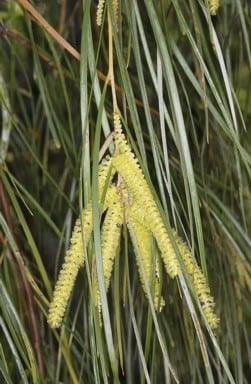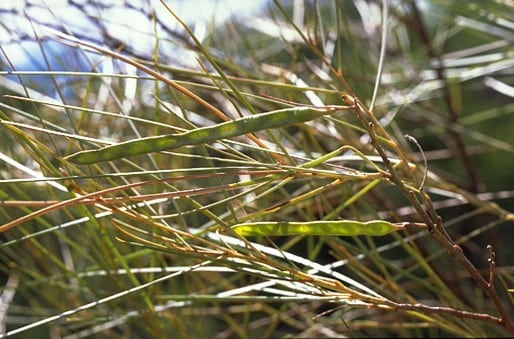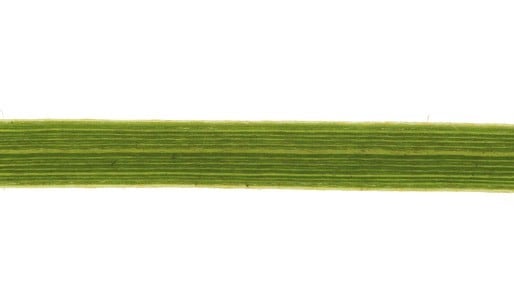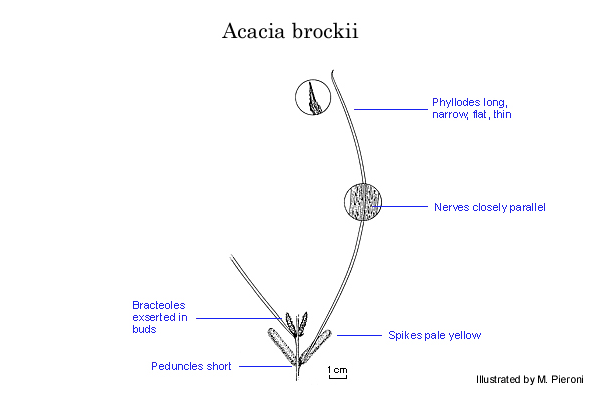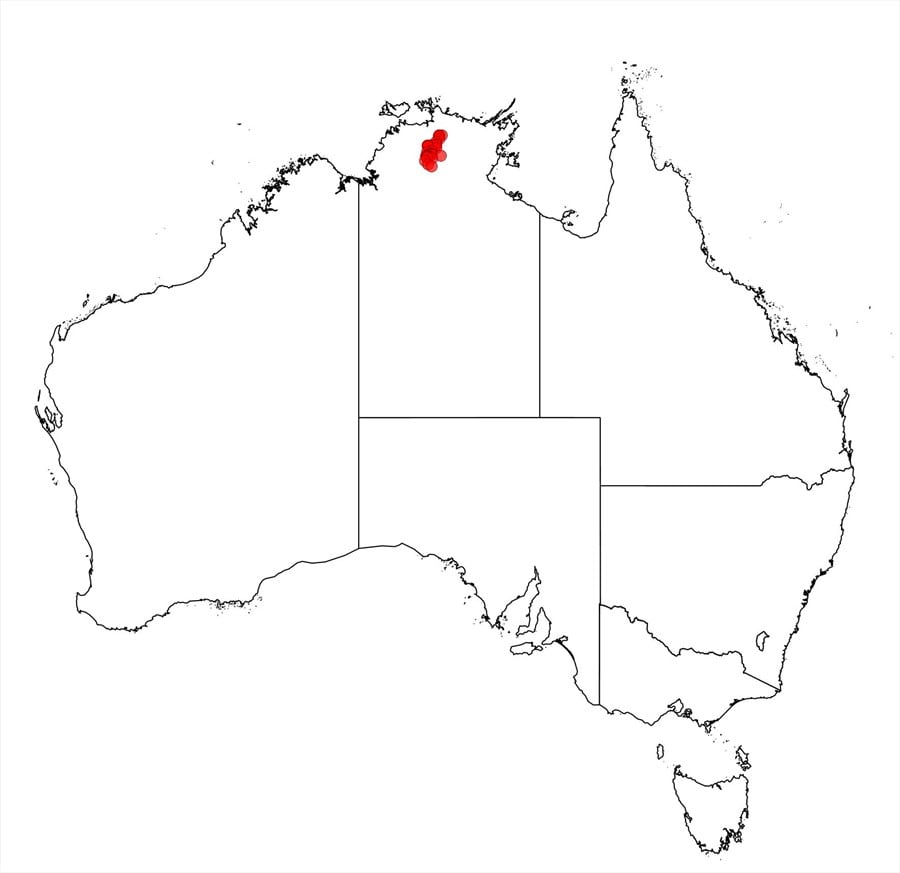Acacia brockii Tindale & Kodela
WATTLE
Acacias of Australia
Family
Fabaceae
Distribution
Recorded from several localities in the southern region of Kakadu Natl Park, N.T.
Description
Tree to 5 m high, slender; foliage silver-grey at first, soon glabrous. Bark smooth, grey. Branchlets terete, angular towards apices, ±appressed-pubescent. Phyllodes linear, flat, straight or slightly falcate, (8.5–) 11–25.6 cm long, 1.4–2.8 mm wide, with glanduliferous apex, ±rigid, with appressed caducous silvery hairs, later subglabrous and bright green, with 5–8 longitudinal nerves per mm; midnerve slightly more prominent; gland basal. Peduncles 2–3 mm long, densely pubescent. Spikes single or paired, 23–43 mm long, 3.5–4.5 mm wide, pale yellow. Flowers 5-merous; calyx 0.8–0.9 mm long, dissected 1/5–1/3, appressed-puberulous ciliate; corolla 1.2–1.5 mm long, dissected 2/5–1/2, glabrous. Pods linear, raised over seeds, ±straight-sided, 8–11.7 cm long, 4.5–6 mm wide, papyraceous, light brown, glabrescent. Seeds longitudinal, brown; areole open.
Phenology
Flowers Apr. & May.
Habitat
Grows in crumbly red kaolinitic soil in dry Asteromyrtus heathland, in deep white sand besides permanent streams in sandstone gorges, and in skeletal soil on sandstone along streambanks in shrubland.
Specimens
N.T.: Barramundie Gorge, J.Brock s.n. (DNA25091) and J.Brock 109 (DNA).
Notes
Acacia brockii is distinguished by caducous appressed hairs on the phyllodes, ciliate bracteoles with acute apices extending beyond the flower buds, and silvery hairs on the calyces.
FOA Reference
Data derived from Flora of Australia Volumes 11A (2001), 11B (2001) and 12 (1998), products of ABRS, ©Commonwealth of Australia
Author
Minor edits by J.Rogers
M.D.Tindale, P.G.Kodela
This identification key and fact sheets are available as a mobile application:
URL: https://apps.lucidcentral.org/wattle/
© Copyright 2018. All rights reserved.
